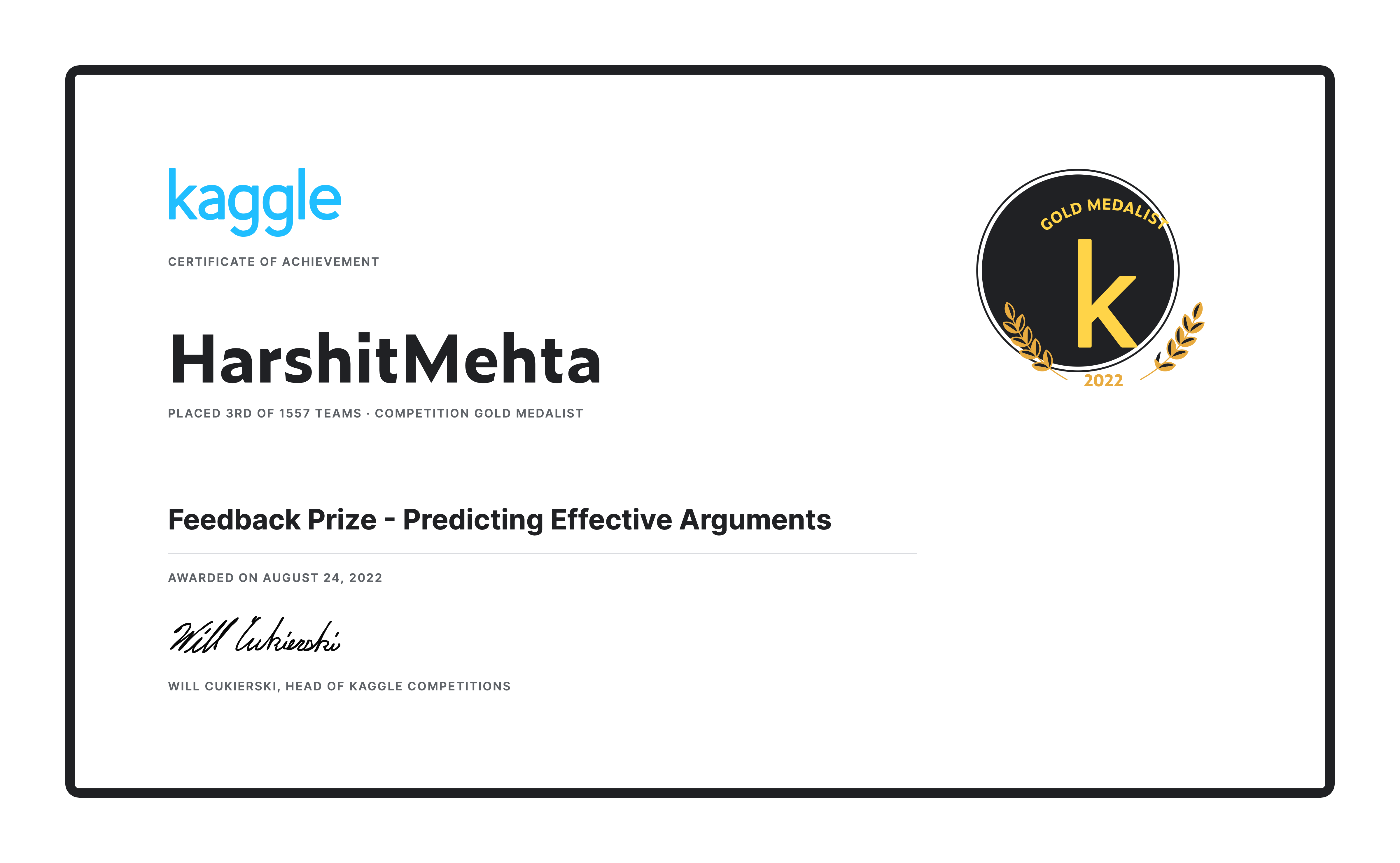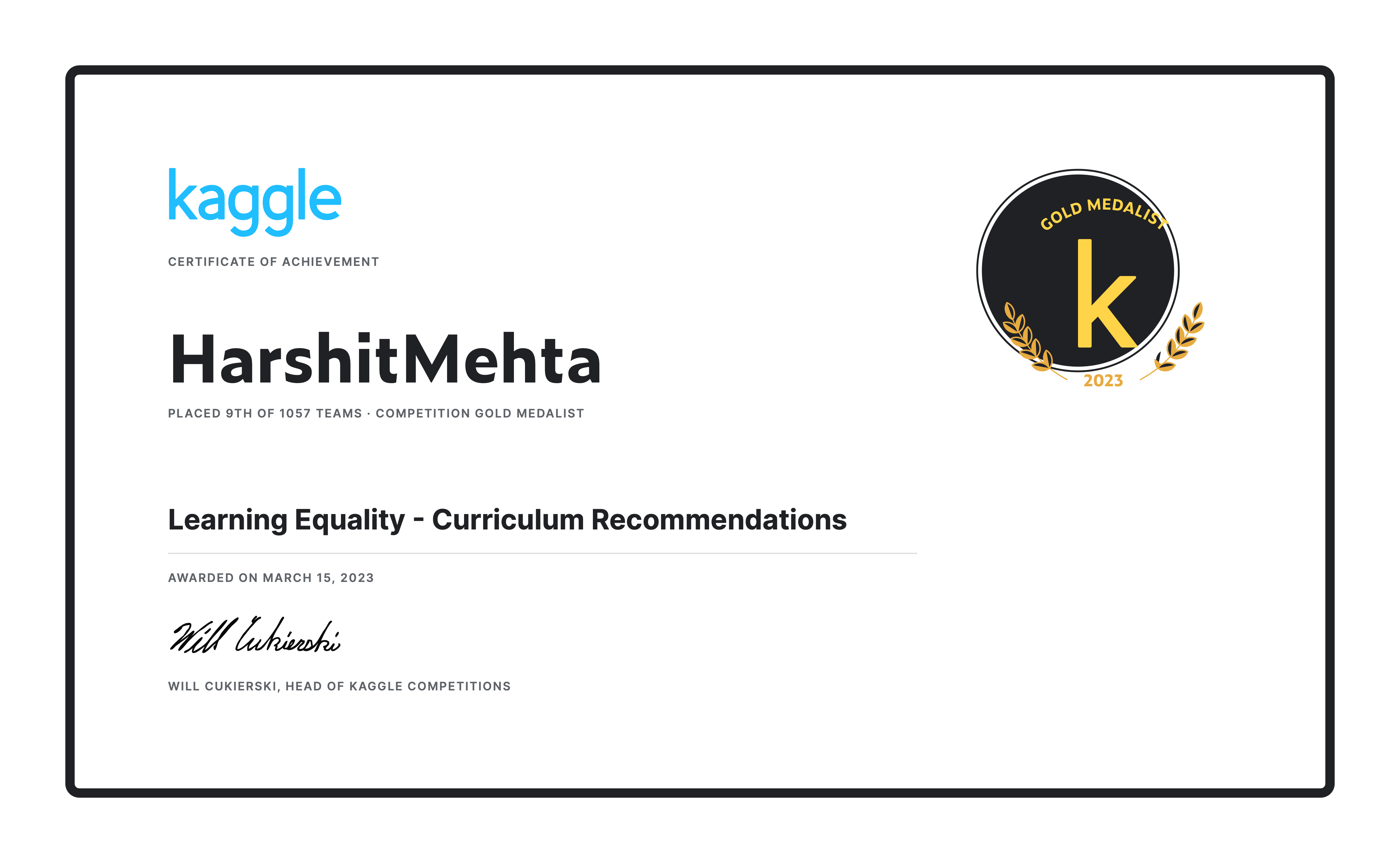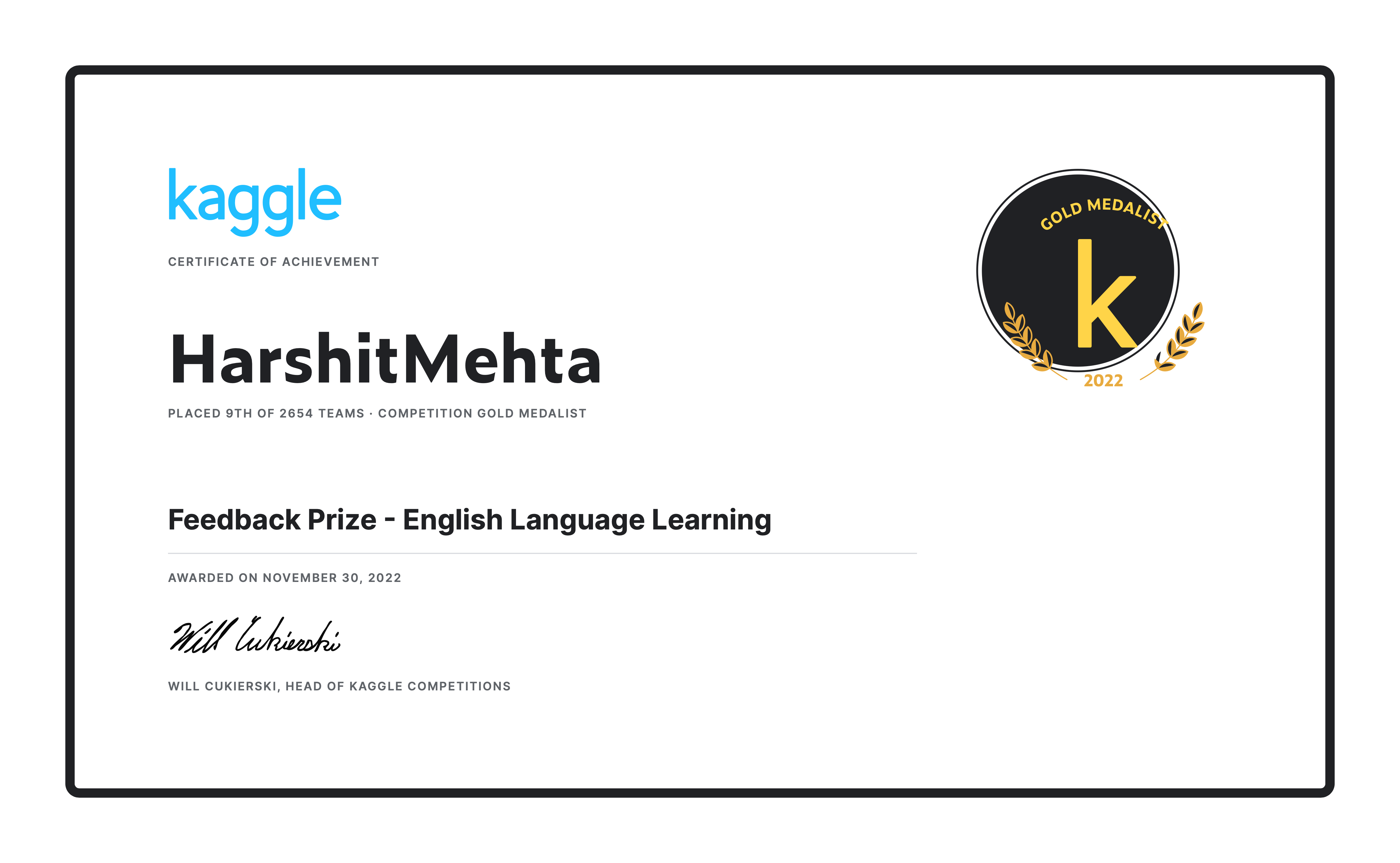
Senior Applied Scientist
RecSys | GenAI & Responsible AI
Building impactful AI solutions at Microsoft Viva | Kaggle Competitions Master

RecSys | GenAI & Responsible AI
Building impactful AI solutions at Microsoft Viva | Kaggle Competitions Master
Harshit Mehta is a Senior Applied Scientist with a proven track record of delivering cutting-edge solutions in Natural Language Processing (NLP), Generative AI, and Recommender System. With extensive experience in prompt engineering (few-shot, CoT, ToT, ReAct, LLM-as-a-judge) and offline/online evaluation frameworks, Harshit has spearheaded high-impact AI features that have improved user engagement metrics at scale.
At Microsoft Viva Engage, he led the rollout of multiple generative AI features, including theme extraction, content moderation, and writing assistance, improving active user engagement and filtering harmful content with measurable success. He has expertise in responsible AI evaluation, collaborating with 10+ teams to mitigate risks like jailbreaks, ungrounded responses, and copyright issues. Harshit also drove A/B experiments in recommendation systems (ranked comments, recommended posts) that optimized content relevance.
Previously, at Dell Technologies, Harshit advanced transformer-based multi-classification models for customer insights, boosting CSAT accuracy by 50% and saving millions in operational costs. He also has expertise in LSTM, CNNs, and autoencoders for anomaly detection and log analysis.
A Kaggle competition enthusiast, Harshit has ranked Top-10 globally in NLP challenges, showcasing his ability to build custom transformer architectures and retrieval+reranker pipelines. His hands-on experience spans PyTorch, TensorFlow, Hugging Face, LightGBM, and scalable ML pipelines.
Disclaimer: This section is generated by AI, but validated by human.
Custom T5 model with span-MLM pretraining, adversarial and multi-task learning for classifying essay effectiveness. Trained diverse set of transformer based models.
📘 View Solution
Official certificate for achieving 3rd place in the Feedback Prize Effectiveness Challenge.
Built multi-class swipe prediction model using permutation/null feature importance to optimize feature set. Leveraged lightgbm algorithm for model training.
Built multilingual retriever-reranker pipeline with Inverse Cloze pretraining and ArcFace embedding ranking.
📘 View Solution
Official certificate for achieving 9th place in the Learning Equality Curriculum Recommendations Challenge.
Built Transformer based multi-output regressor. Leveraged techniques like Adversarial weight perturbation, auxillary loss and multi sample dropout.
📘 View Solution
Official certificate for achieving 9th place in the English Language Learning Assessment Challenge.
Constructed patent phrase matching models using transformer-based encoders.
📘 View SolutionOfficial certificate for achieving 10th place in the US Patent Phrase Matching Challenge.
This comprehensive survey investigates the transformative potential of AI and machine learning in next-generation computing systems. The research explores how autonomic computing principles, inspired by the human nervous system, can enable self-managing systems that adapt to environmental changes without human intervention. The paper examines emerging computing paradigms including cloud, fog, edge, serverless, and quantum computing, identifying key challenges and opportunities for integrating AI/ML technologies to achieve autonomous resource management and performance optimization at scale.
This groundbreaking systematic review explores the convergence of three transformative technologies—Internet of Things (IoT), Blockchain, and Artificial Intelligence—and their collective impact on cloud computing evolution. The research presents a comprehensive analysis of how this technological triumvirate addresses critical challenges in modern cloud systems, including energy consumption, security, reliability, and scalability. The study proposes a conceptual model for cloud futurology, examining how these emerging paradigms will reshape distributed computing architectures and enable next-generation applications across diverse domains.
This innovative patent introduces a sophisticated machine learning framework for analyzing telemetry data from computing devices to predict usage profiles and generate intelligent recommendations. The system employs advanced ML algorithms to identify usage patterns, predict component failures, and provide cost-benefit analyses for warranty extensions, hardware upgrades, and device replacements. The technology enables proactive device management by analyzing resource utilization, performance metrics, and failure patterns to optimize user experience and reduce operational costs.
View my resume to learn more about my experience and qualifications.